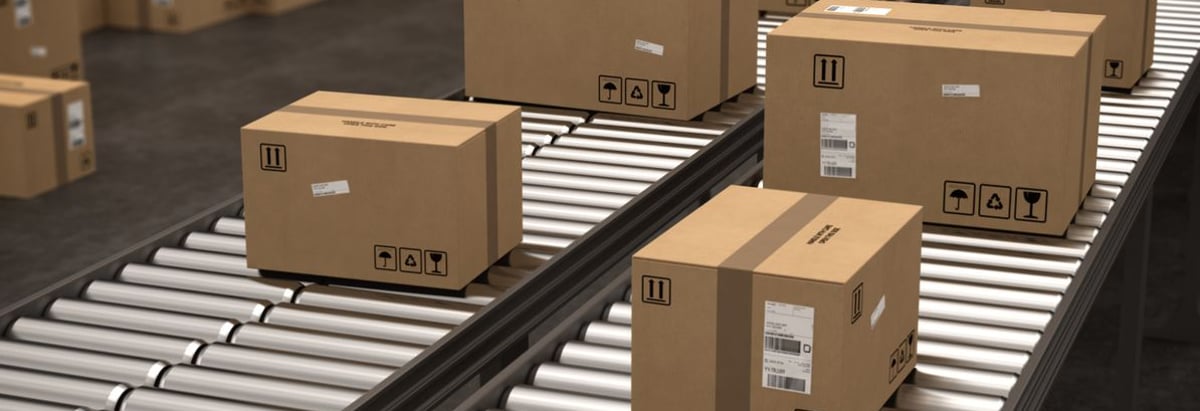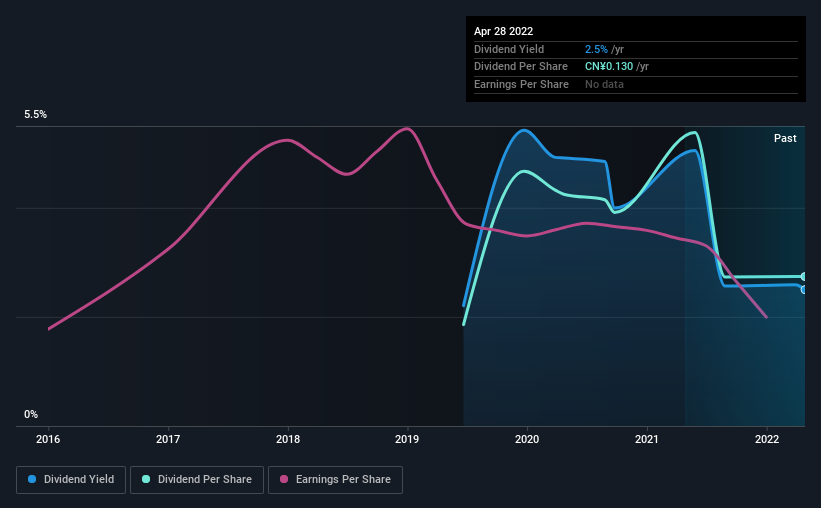Pacific Millennium Packaging Group (HKG:1820) Is Reducing Its Dividend To HK$0.08

Pacific Millennium Packaging Group Corporation (HKG:1820) has announced it will be reducing its dividend payable on the 20th of July to HK$0.08. This means that the annual payment is 2.6% of the current stock price, which is lower than what the rest of the industry is paying.
Check out our latest analysis for Pacific Millennium Packaging Group
Pacific Millennium Packaging Group's Earnings Easily Cover the Distributions
It would be nice for the yield to be higher, but we should also check if higher levels of dividend payment would be sustainable. The last dividend made up a very large portion of earnings and also represented 80% of free cash flows. This indicates that the company is more focused on returning cash to shareholders than growing the business, but we don't think that there are necessarily signs that the dividend might be unsustainable.
Looking forward, could fall by 9.2% if the company can't turn things around from the last few years. However, if the dividend continues along recent trends, we estimate the payout ratio could reach 77%, meaning that most of the company's earnings is being paid out to shareholders.

Pacific Millennium Packaging Group's Dividend Has Lacked Consistency
The track record isn't the longest, but we are already seeing a bit of instability in the payments. The dividend has gone from CN¥0.088 in 2019 to the most recent annual payment of CN¥0.13. This means that it has been growing its distributions at 14% per annum over that time. Pacific Millennium Packaging Group has grown distributions at a rapid rate despite cutting the dividend at least once in the past. Companies that cut once often cut again, so we would be cautious about buying this stock solely for the dividend income.
Dividend Growth Is Doubtful
With a relatively unstable dividend, it's even more important to evaluate if earnings per share is growing, which could point to a growing dividend in the future. Pacific Millennium Packaging Group has seen earnings per share falling at 9.2% per year over the last five years. A modest decline in earnings isn't great, and it makes it quite unlikely that the dividend will grow in the future unless that trend can be reversed.
The Dividend Could Prove To Be Unreliable
Overall, it's not great to see that the dividend has been cut, but this might be explained by the payments being a bit high previously. The track record isn't great, and the payments are a bit high to be considered sustainable. We would probably look elsewhere for an income investment.
It's important to note that companies having a consistent dividend policy will generate greater investor confidence than those having an erratic one. However, there are other things to consider for investors when analysing stock performance. Just as an example, we've come across 3 warning signs for Pacific Millennium Packaging Group you should be aware of, and 2 of them are significant. If you are a dividend investor, you might also want to look at our curated list of high yield dividend stocks.
New: Manage All Your Stock Portfolios in One Place
We've created the ultimate portfolio companion for stock investors, and it's free.
• Connect an unlimited number of Portfolios and see your total in one currency
• Be alerted to new Warning Signs or Risks via email or mobile
• Track the Fair Value of your stocks
Have feedback on this article? Concerned about the content? Get in touch with us directly. Alternatively, email editorial-team (at) simplywallst.com.
This article by Simply Wall St is general in nature. We provide commentary based on historical data and analyst forecasts only using an unbiased methodology and our articles are not intended to be financial advice. It does not constitute a recommendation to buy or sell any stock, and does not take account of your objectives, or your financial situation. We aim to bring you long-term focused analysis driven by fundamental data. Note that our analysis may not factor in the latest price-sensitive company announcements or qualitative material. Simply Wall St has no position in any stocks mentioned.
About SEHK:1820
Pacific Millennium Packaging Group
An investment holding company, manufactures and sells packaging materials in the People’s Republic of China.
Slightly overvalued with imperfect balance sheet.
Similar Companies
Market Insights
Community Narratives




